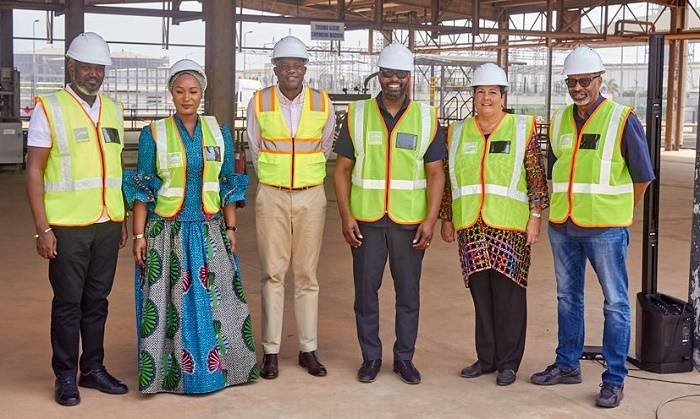Puma Energy Ghana reiterates commitment to enabling access to energy

Puma Energy Ghana, a leading energy company, has reiterated its commitment to enabling access to energy and specifically, clean cooking solutions.
Mr Zwelithini Mlotshwa, General Manager, Puma Energy Ghana, who disclosed this when the U.S. Environmental Protection Agency (EPA) Administrator, Michael S. Regan, visited the company’s affiliate Liquefied Petroleum Gas (LPG) bottling facility in Tema said “LPG is a safe, convenient and cost-effective way to energise our communities; to enable cleaner cooking, and reduce the negative impacts of burning traditional cooking fuels.”
Puma Energy’s LPG bottling plant located in Tema is a US$6 million state-of-the-art facility with the capacity to deliver 1200 cylinders of various sizes per hour.
The plant will enable the rollout of the Cylinder Recirculation Model (CRM) initiative in line with the Ghanaian government’s agenda to encourage the use of LPG in order to attain a penetration target of 50 per cent by 2030, ensure safety, and accessibility, and improve energy efficiency.
He said “Beyond domestic use, LPG is a vital energy source for commercial and industrial applications, including hotels, restaurants, hospitals schools, and shopping malls.”
The visit, attended by Mr Michael S. Regan, the Second Lady, Mrs Samira Bawumia, and U.S. Ambassador to Ghana, Virginia Palmer, was aimed at familiarising them with Puma Energy Ghana’s LPG operations and the important role it plays in enabling access to LPG in Ghana.
Mr Regan acknowledged the importance of enabling access to sustainable energy saying “Access to clean and affordable energy is essential for economic development, reducing poverty, and mitigating the effects of climate change.”
The U.S. Ambassador emphasised the importance of public-private partnerships to achieve the UN Sustainable Development Goals.
“It’s essential to invest in clean cooking solutions. Working together with government entities and stakeholders, we can create positive change and improve the lives and health of the Ghanaian people,” she said.
In sub-Saharan Africa, where an estimated 970 million people lack access to clean cooking fuels and technologies according to the International Energy Agency (IEA), LPG plays a vital role in the energy mix.
Many households rely on solid fuels such as wood and charcoal, or kerosene, which leads to environmental and health hazards.
Household air pollution, predominantly from cooking smoke, is linked to 2.5 million premature deaths globally, while the use of wood also contributes to deforestation.





